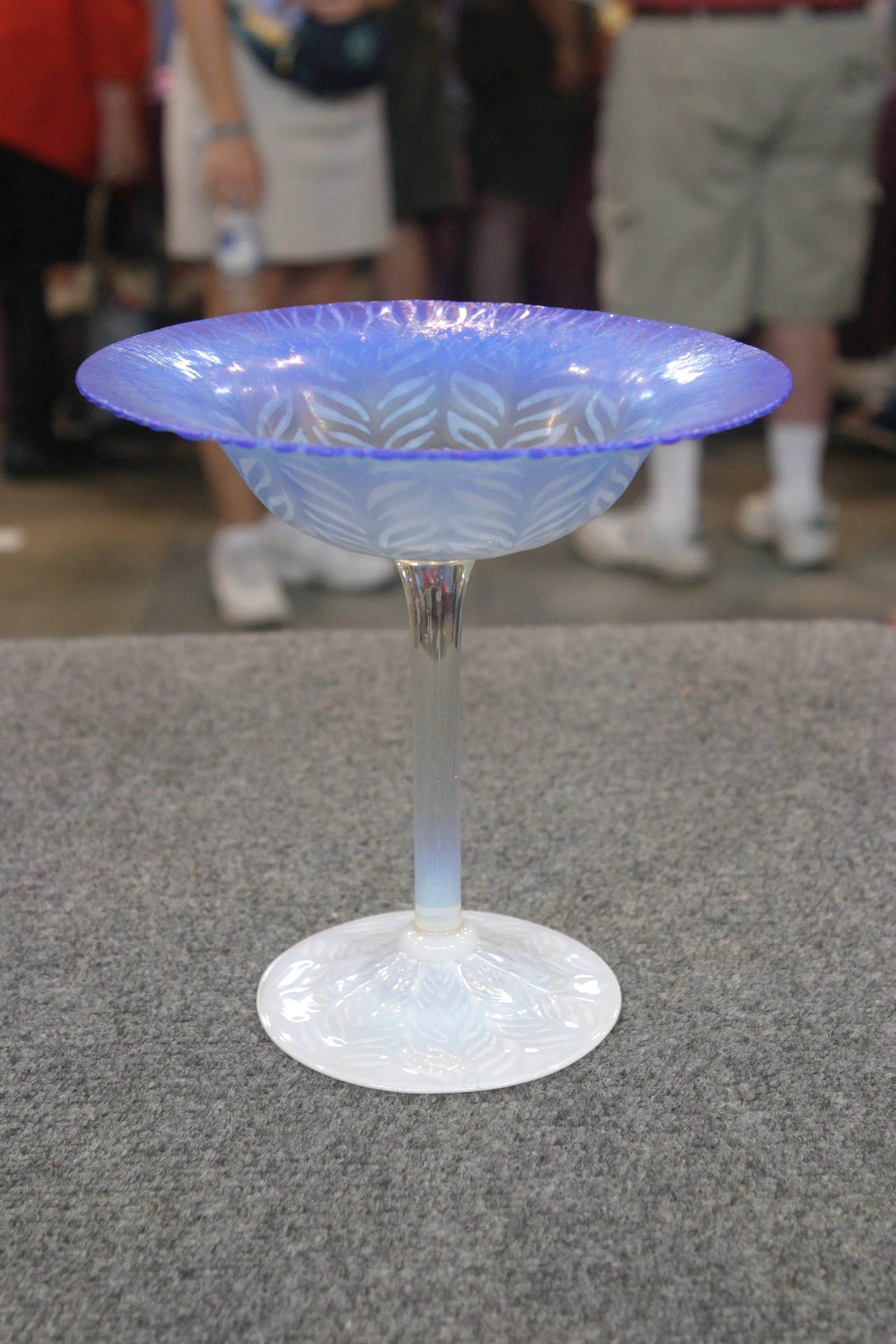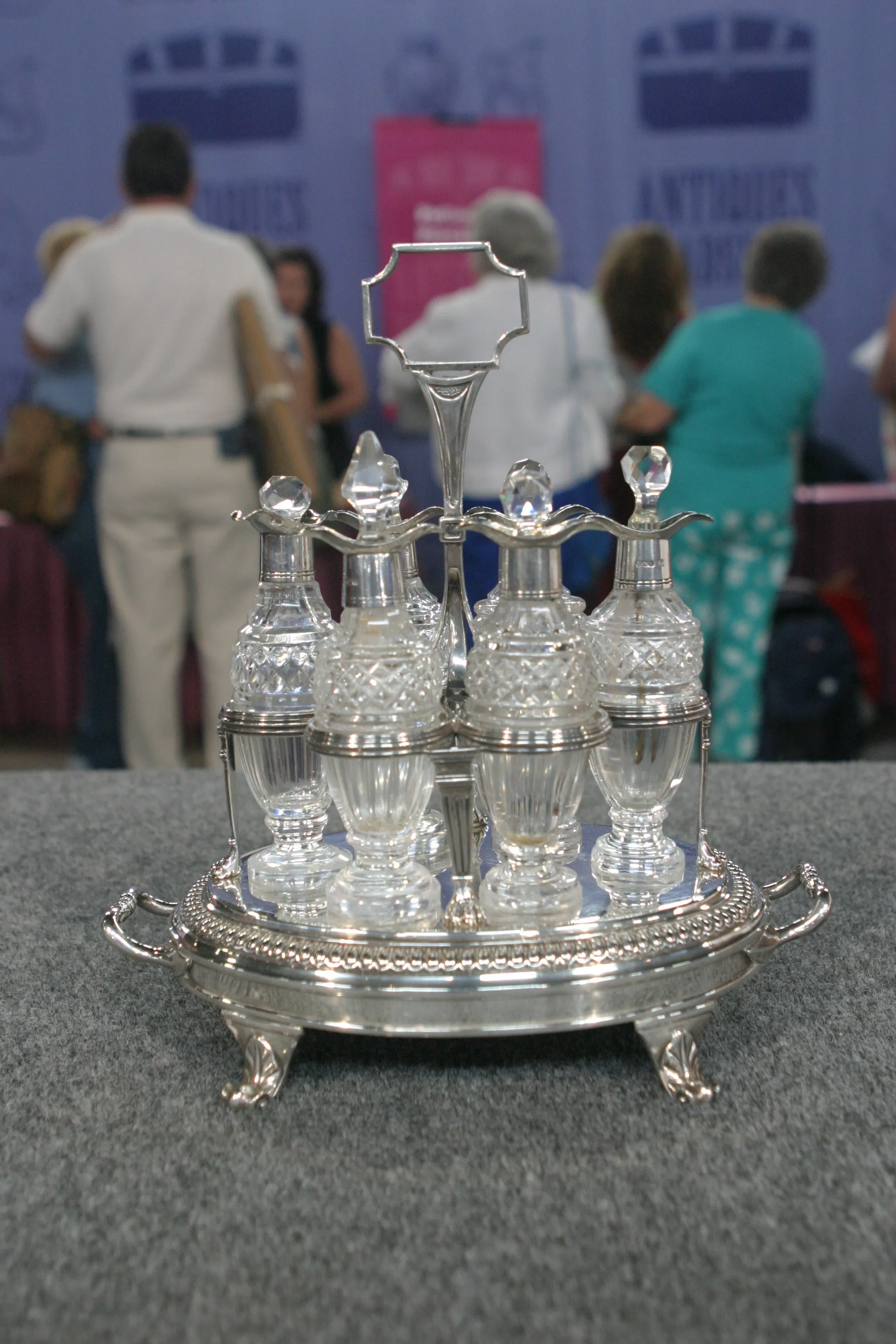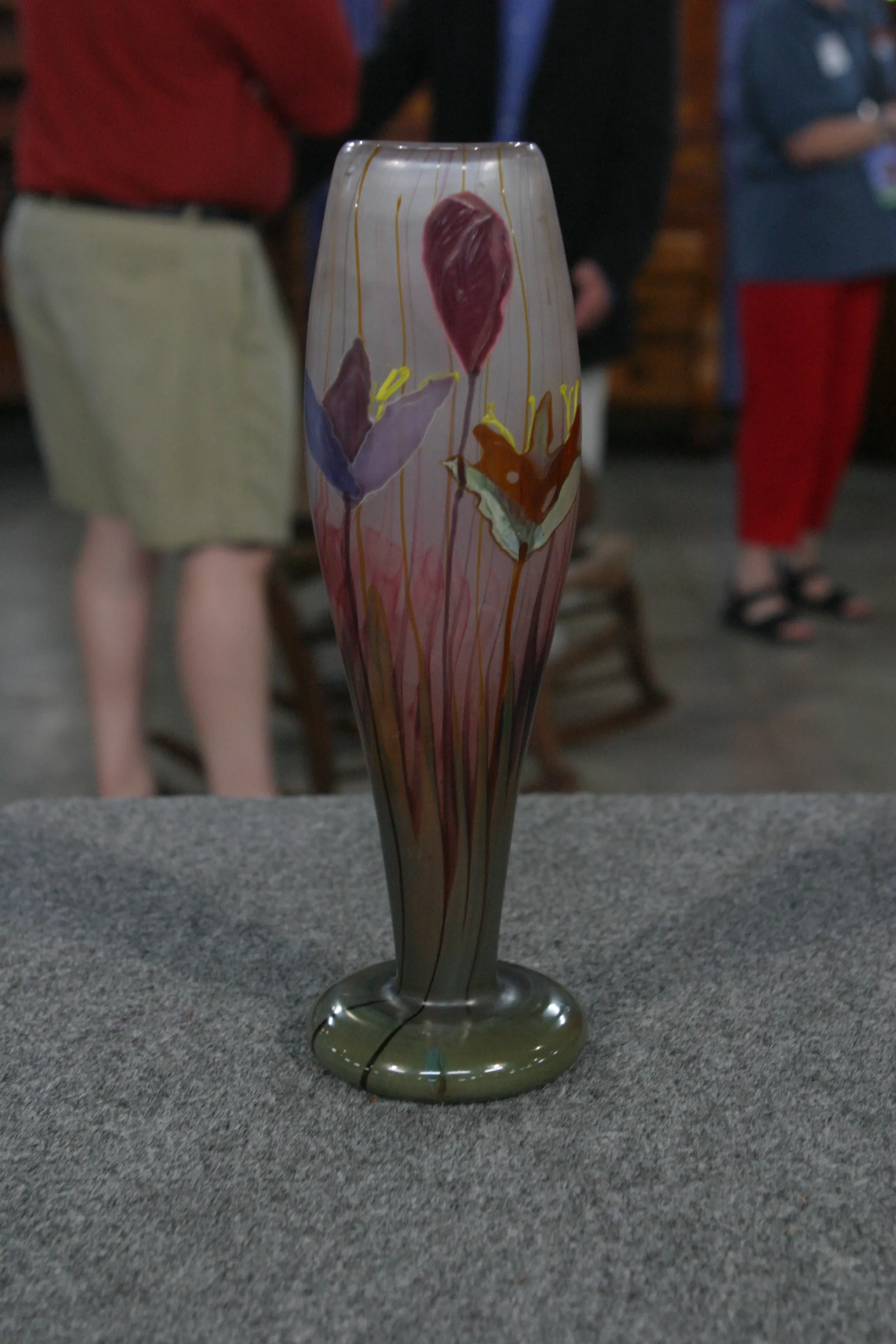GUEST: I don't really know a whole lot about it. It belonged to my great-great-grandmother and was given to me by my mother, and she got it from my grandmother.
APPRAISER: And so where was your great-grandmother from, or great-great-grandmother, I should say?
GUEST: The family was from certain parts of western Ohio, and even into Fayette County, Kentucky, I believe.
APPRAISER: Well, what you have here is a clock that was made in Bristol, Connecticut. And the reason I know that is because if we open up the door here, there's an original label right here, and it was made by Birge & Fuller in Bristol, Connecticut. And they were a partnership that was started in 1844 and ended in 1847 with the death of Thomas Fuller. And that ended the partnership, but it was a very successful partnership. But what you brought in here today is what we call a single candlestick beehive clock, which is probably one of the rarest clocks that they actually made. They made double candlestick clocks. You see just a single one here. A double candlestick clock would have two candlesticks on each side. It's a smaller size than normal, too. What's interesting about this clock is the mechanism. And if we open up down here, this is called the wagon spring and it really is what powers the clock. When you wind the clock up, these cords over these pulleys pull up this wagon spring, and it's sort of like a leaf spring in a car. And it pulls down and it offers power to the clock, which is pretty interesting and a pretty rare thing. There's a few condition issues, unfortunately, and one is the dial. It's a new dial. It's not an original dial to the clock. This glass has been repainted on this outer edge as well, which is a bit of a condition issue, but not major. A wonderful original tablet at the bottom that's just to die for. It's a beautiful tablet. That being said, this clock in this condition would probably sell at a retail setting for around $4,000. Now, there was one about five years ago that was at auction that was perfect and it brought in excess of $25,000 for a clock like this.
GUEST: Wow.
APPRAISER: If this clock were perfect today, in a retail setting, I think it would bring far less than that because of the economy and the way things are right now. I think in a retail setting today, if it were perfect, you'd be talking about a clock between $12,000 to $15,000.
GUEST: How much do you think it would cost to...
APPRAISER: Well, you can't really rectify the dial. It's such a rare clock, there's not an original dial for it. So these issues are sort of uncorrectable. Great clock; I was happy to see it and I appreciate you bringing it in today.
GUEST: It's awesome, thanks. I'm glad I came.







